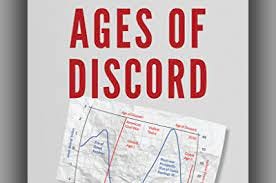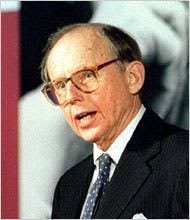The American Plot
What happens when dreams stop making sense?
Six years ago, University of Connecticut professor Peter Turchin published an influential book, Ages of Discord: A Structural-Demographic Analysis of American History, in which he coined a useful term: “elite overproduction.” An interdisciplinary scholar whose work sits at the intersection of evolutionary biology, economics, and anthropology, Turchin explores recurring patterns in human societies over long periods of time. A key premise of his work is that many of these societies in effect buy civil peace by creating avenues for social mobility via equality of opportunity.
Now, avenues are not the same thing as destinations, and equality of opportunity is not the same thing as equality of outcome. They can’t be: privilege is by definition a finite resource whose very essence is exclusivity, and for all their sincere desire for equality in some contexts, human beings are incorrigible in their desire to create tiers (perhaps the more apt term today is degrees) of distinction in everyday life. But a credible belief in its attainment is an indispensable safety valve. Fresh blood—which is sometimes literally the way such success has been attained—is essential for the vitality of a system. The reality of some mobility blunts the force of disappointed strivers, who can be seen, and sometimes come to see themselves, as finally lacking What It Takes. Whether or not this is actually true, you only need some degree of ambiguity to sustain social equilibrium. You get there by maintaining consensus around a proposition that everyone—everyone you count as belonging to the tribe, that is—can succeed. Not that everyone will succeed, or should succeed, since failure in the latter two formulations will lead directly to attacks on a system whose controlling beneficiaries wish to maintain the status quo. The logic here is pretty clear and has been maintained in one way or another in societies across the globe for thousands of years.
Of course, the devil is in the details. How much opportunity? What kind? Enlightened members of ruling classes know they need some social mobility, but not so much that elites become frightened they will lose what they have—another source of instability. Another problem is that all societies have a finite amount of total resources to distribute. If you’re running the Roman Empire, you can grow through conquest, enslave those you defeat, and assimilate their talent. To a point. Armies cost money; so do administering territories. You can buy peace, as the emperor Caracalla did in the third century when he granted citizenship to all free men in the empire. But the cost of raising expectations compounds over time. These costs can be hard to calculate, and even the most shrewd humans make mistakes.
That’s where “elite overproduction” comes into the equation. If you generate too many qualified people chasing too few bona fide opportunities, the inevitable result is social instability. The outcome of that instability can vary. Sometimes societies reform from within, as the United States did during the Progressive era. (We have collectively forgotten just how anxious a time the 1890s were, how pervasive fears were that American society was on the edge of a dangerous revolution.) In other cases, regimes, whether those of corporations, universities or empires, are overthrown, sometimes by a rival faction, more often by outsiders with the force and resources to reimpose—which is to say redistribute—order.
As many observers have noted, the United States in the early 21st century seems to be a society experiencing increasingly acute elite overproduction. In and of itself, this is not an especially rare phenomenon in the contemporary world. It was widely cited as an underlying factor in the Arab Spring of a decade ago, for example, and surfaces as an explanation of unrest in much of Europe and East Asia. We see it for example, in the difficulty young people have in paying for their educations, building wealth, and other vividly lived metrics.
What makes the American case distinctive is the backdrop of how much social mobility seemed to exist for so long. To be sure, the empirical amount of such mobility has been rightly questioned in terms of who has been excluded, and how far realistically one could go. We are also at a point when the U.S. is relatively less powerful, with relatively fewer resources, relative to its rivals or what it once had at its disposal to distribute. But the perceived amount of mobility capital in the United States has been truly extraordinary for hundreds of years and continues to define our imaginations. We have a term for it: it’s called the American Dream.
As I think we all understand, the American Dream has fallen on hard times (though the surge of immigrants who seek or have succeeded in coming here attests it’s not dead yet). In academic circles, the idea is regarded with something approaching derision. Earlier this week, the New York Times ran a story on the way conservative politicians, many of them people of color, are invoking it as an endangered ideal they are trying to protect. About the only thing we all seem to agree upon is that American Dream is in a precarious state. In one sense, that’s nothing new: there have always been people saying it’s at risk.
What is a little new—or, at least, something the United States hasn’t seen in quite some time—is the way in which elite overproduction has generated growing doubt about American Dream among those who at least in theory would have the most reason to believe in it. It has become conventional wisdom that the great dividing line in American society is between those who have college degrees and those who do not. There are lots of reasons to think so. But as Will Bunch documents in his new book After the Ivory Tower Falls, we’ve also seen in recent years the rise of an educated precariat: people raised to believe in upward mobility—or upward stability—who plausibly fear it’s out of reach. Besides the usual indicators of college debt and rising home prices, this perception is also shaped by something a little harder to measure: an expectation for meaningful work. The gap between the work one wants to do and the work that world wants done seems to be widening.
What does one do when confronted with such a gap between an imagined ideal and a living reality? In his 1981 book American Politics: The Promise of Disharmony, political scientist Samuel P. Huntington names four possibilities: moralism (eliminate the gap); hypocrisy (deny the gap); complacency (ignore the gap) and cynicism (tolerate the gap). Huntington explores the way these responses have shaped U.S. history over the last two centuries.
In our time—as in the 1960s—the dominant response has been moralism, what Huntington calls “creedal passion.” It has animated a series of reform movements in recent decades, though those movements have been rooted more in race and gender rather than in class, and self-actualization than collective economic equality. But like all responses, Huntington says, even successful creedal passion has limits, principally in the difficulty in sustaining it. It just gets tiresome after a while. For everybody.
That may be why we’re seeing something Huntington didn’t quite consider: scenarios in which the American Dream is treated as largely irrelevant. In the new movie Emily the Criminal, Aubrey Plaza plays a young woman who is saddled with $70,000 in college debt after pursuing a degree in graphic design. But because she has a criminal record, she can’t get a good job. Her response to this situation takes the form of embarking on a career of credit card fraud, at which she proves quite adept. We’re never told why Emily thought it was wise to go so far in hock for a degree of dubious returns (though to be fair, dreams are by definition not really practical); the circumstances surrounding her conviction (we’re to understand the verdict was unfair); or how her victims might be affected (presumably not badly enough to question the premise of the story). In short, the system is broken, and the ends justify the means. There’s no moral dilemma or inner conflict here, just a question of whether she’s going to succeed or not.
This is not exactly a new idea in American culture. There’s a long tradition in Westerns and gangster movies that regard the conventional vision of the American Dream as a corrupt joke to be actively rejected. But they’re usually outsiders of one kind or another who are deeply engaged with that which they are rebelling against. Less common is a story about a poised, Angelo-by-way-of Jersey suburbs Millenial who becomes a rebel with a vividly clear cause: herself. (American individualism runs across the ideological spectrum, something outside observers may find more notable than the internecine conflicts we do.) In some sense, Emily the Criminal is a typical parable of our times, in that we have become habituated to, even obsessive about, casting alternative characters—in this case, a young woman who wields a mean boxcutter—in central roles. But what’s really subversive here is how the American Dream is beneath serious consideration by a woman who had made the mistake of literally investing in it and leaving it behind at the start of the story. (North American dream; there’s a South American angle.)
For a number of years now, one of the most incisive, and troubling, interrogators of elite overproduction is novelist Jean Hanff Korelitz. In her 2009 book Admission—made into a 2013 movie starring Tina Fey and Paul Rudd, Korelitz tells the story of Portia Nathan, a conscientious admissions officer at Princeton University. But only until she comes to believe that the child she gave up for adoption is applying to Princeton. Readers may have different reactions to Portia’s choices (this is one of the things that makes an absorbing novel absorbing), but in any event, it’s clear that Korelitz is raising troubling questions about the efficacy of a meritocracy that has begun to split hairs ever more finely in the manufacture of an elite. Her own stance seems to be skepticism that crosses into cynicism.
This perception is even stronger in Korelitz’s 2021 novel The Plot, which has just been issued in paperback. Here the locus of elite overproduction is the world of fiction itself, where a cottage industry of writing programs stoke the fantasies of would-be novelists who are sold on dreams of success that are impossibly remote. The protagonist of this story is Jacob Finch Bronner, a once-promising, now washed-up, writer who supports himself by teaching in a third-rate program in Vermont. There he encounters an arrogant student who believes he has a can’t-miss idea for a novel. Bonner finds himself reluctantly agreeing that he’s right, and when the student dies, he takes the idea and writes it up, achieving success on exactly the scale he most fondly imagined for himself. And then his terror of exposure begins.
One thing that’s truly ingenious about The Plot is the multiple meanings of its title, which range from a storyline to a conspiracy to an actual grave. This is a metatextual novel within a novel that offers both a good yarn and poses compelling questions about the nature of talent and who gets a platform to tell a story. As multiple characters make clear, Bronner is not legally guilty of plagiarism: you can’t copyright an idea any more than you can a title, and the prose in the tale he tells is his own. But he does decide to keep the circumstances surrounding the novel’s creation a secret, and here one can argue he’s guilty of an ethical violation for which he should be held accountable.
Which, you won’t be surprised to learn (because plots are archetypal and there are some things you know going into them, even as you remain curious about the details), Bronner does pay a price. But—to the point at hand—his account gets settled in a way that’s wholly outside the American Dream ecosystem. We’re talking about a form of rough justice, though one can wonder upon finishing the book whether justice really has anything to do with it. Bronner regards himself as a cold-eyed realist, as the narrator makes clear early in The Plot: “He didn’t believe in destiny, luck, or the power of positive thinking. He didn’t believe that we get what we deserve, that everything happens for a reason, or that supernatural forces impacted anything in a human life. What was left after all that nonsense? The sheer randomness of the circumstances we are born into, the genes we’ve been dealt, our varying degrees of willingness to work our asses off, and the wit we may or may not possess to recognize an opportunity. Should it arise.”
Jacob Bronner—like his creator, like Emily the Criminal, and perhaps a growing number of Americans—is literally disenchanted. He no longer thinks American Dreams have anything to do with reality, and acts accordingly. That’s not just a sad state of affairs; it’s also an untenable one. If myths no longer work, it’s only a matter of time before new ones come along. A society can’t last without them. That is the master plot of human civilization.





